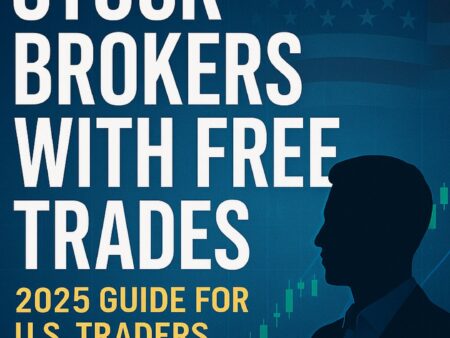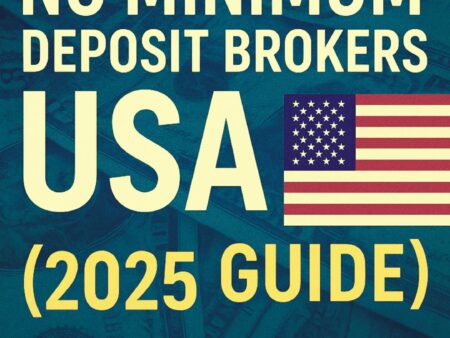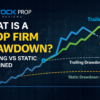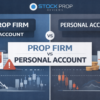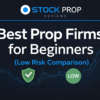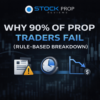Finding the right stock broker can significantly affect your trading success, especially when it comes to fees. Whether you’re a beginner learning the ropes or an intermediate trader looking to scale up, choosing a low commission broker can help you save money and grow your account faster.
In this comprehensive guide, we’ll explore the best low commission stock brokers in the US for 2025. You’ll learn what makes a broker low-cost, what features to prioritize, and how to decide which platform is right for you.
Why Commission Fees Matter for Traders
Even small trading fees can eat into your profits—especially if you’re making multiple trades each week. That’s why finding low commission brokers has become a top priority for U.S. traders.
Here’s how commissions can impact you:
- Frequent traders lose more money over time to fees.
- Beginners need low-cost platforms to learn affordably.
- Investors benefit from lower long-term portfolio drag.
Thanks to growing competition, most U.S. brokers now offer commission-free trading on stocks and ETFs—but that doesn’t mean all brokers are equal. Some still charge hidden fees, offer limited features, or cut corners on customer service.
Let’s explore your best options.
Top Low Commission Brokers in the US (2025)
Here’s a quick comparison of the best low commission stock brokers USA traders can use in 2025:
| Broker | Stock/ETF Commission | Options Fees (per contract) | Account Minimum | Best For |
|---|---|---|---|---|
| Robinhood | $0 | $0 (with Gold plan) | $0 | Mobile trading, beginners |
| Fidelity | $0 | $0.65 | $0 | Long-term investing, research |
| Charles Schwab | $0 | $0.65 | $0 | Retirement, ETFs |
| TD Ameritrade | $0 | $0.65 | $0 | Active traders, education |
| E*TRADE | $0 | $0.65 | $0 | Options traders |
| Webull | $0 | $0.55 | $0 | Technical analysis, no fees |
| Interactive Brokers | $0 (IBKR Lite) | $0.65 | $0 | Global trading, professionals |
1. Robinhood
Best for: Beginners and mobile traders
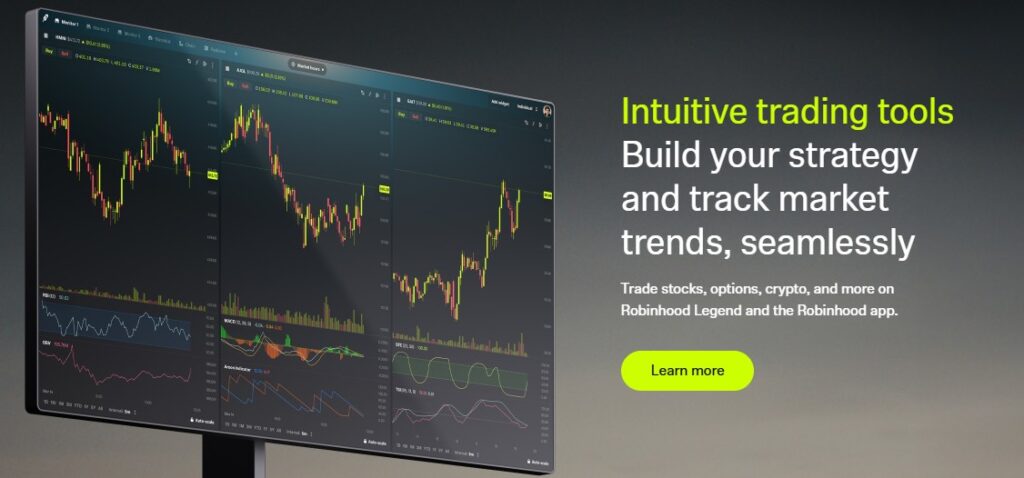
Pros:
- $0 commissions for stocks, ETFs, options, and crypto
- User-friendly mobile and web platform
- No account minimum
- Instant deposits and easy interface
Cons:
- Limited customer support
- Basic research and charting tools
Robinhood popularized the zero-commission movement and remains a strong choice for those looking to trade stocks without fees.
2. Fidelity Investments
Best for: Long-term investors and researchers

Pros:
- $0 stock and ETF commissions
- Excellent research tools
- Strong customer service
- Fractional share investing
Cons:
- Platform not as sleek as newer competitors
Fidelity is a great low commission option for investors who want more than just cheap trades. Its research tools are ideal for serious traders and long-term planners.
3. Charles Schwab
Best for: Full-service investors and retirement planning

Pros:
- Commission-free trades on U.S. stocks and ETFs
- Schwab Stock Slices for fractional investing
- Strong educational content
Cons:
- No cryptocurrency trading
Charles Schwab offers a solid combination of low fees and high-quality support, especially for those interested in building long-term wealth.
4. TD Ameritrade
Best for: Traders looking for advanced tools and education
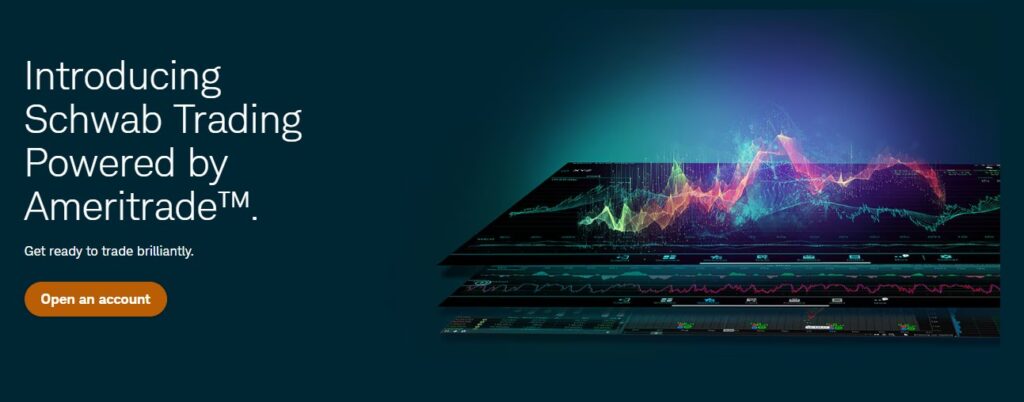
Pros:
- $0 commissions on stocks and ETFs
- Thinkorswim platform included
- Paper trading accounts for practice
- Tons of educational material
Cons:
- Slightly outdated interface on the standard platform
Even though it’s merging into Schwab, TD Ameritrade remains a standout for active traders who want low commissions plus high-powered tools.
5. E*TRADE
Best for: Options traders and active investors
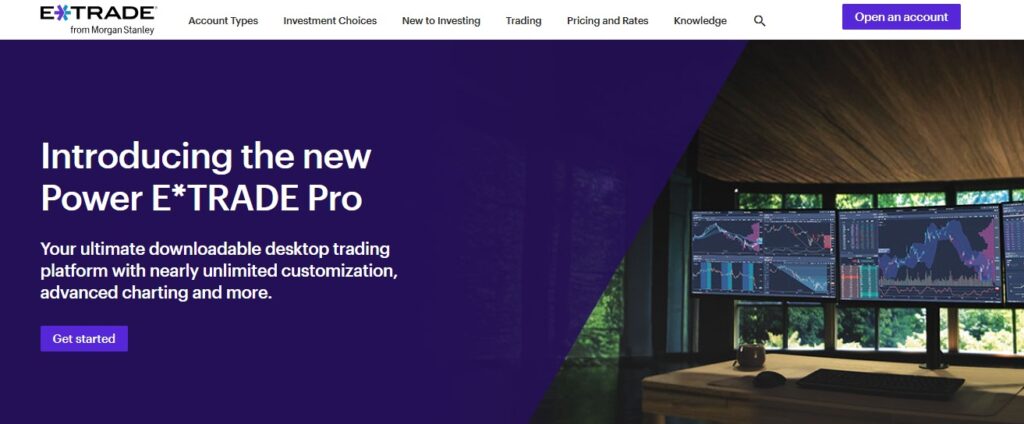
Pros:
- Commission-free trading for stocks and ETFs
- Competitive options pricing
- Power E*TRADE platform offers strong tools
Cons:
- Slight learning curve for beginners
E*TRADE delivers excellent value for those focused on options or more complex strategies while still offering zero commission on basic trades.
6. Webull
Best for: Technical analysis traders

Pros:
- $0 commissions on stocks, ETFs, and options
- Low options fees ($0.55 per contract)
- Advanced charting features
- No account minimum
Cons:
- Limited financial planning tools
- No mutual fund trading
Webull is one of the lowest-cost brokers on the market and a favorite among traders who rely heavily on charts and market data.
7. Interactive Brokers (IBKR Lite)
Best for: Professional and global traders
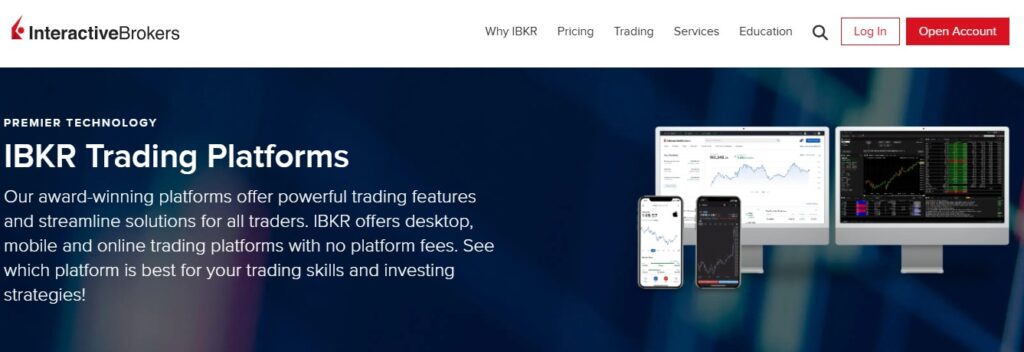
Pros:
- $0 commission via IBKR Lite
- Extremely low margin rates
- Access to 135+ global markets
- Advanced order types and tools
Cons:
- Not very beginner-friendly
Interactive Brokers is the top choice for experienced traders looking to reduce costs on a large volume of trades or access international exchanges.
Factors to Consider When Choosing a Low Commission Broker
1. Commission-Free Trades
Most brokers now offer $0 stock and ETF trades—but watch for hidden fees in options or mutual funds.
2. Options Pricing
If you trade options, look beyond the stock commission. Per-contract fees matter too.
3. Margin Rates
Low commissions can be offset by high margin interest. If you trade on margin, compare broker rates.
4. Platform Usability
Even with low fees, a platform that’s hard to use can cost you in missed trades or poor execution.
5. Research Tools
Free platforms often lack advanced research. Brokers like Fidelity and Schwab provide excellent tools without high fees.
6. Customer Support
Reliable help matters. Make sure your broker offers quality support even with lower fees.
Options and Margin Pricing Comparison
| Broker | Options Fee (per contract) | Margin Rate (Approx.) |
| Robinhood | $0 (w/ Gold plan) | 12% |
| Fidelity | $0.65 | 12.075% |
| Schwab | $0.65 | 13.575% |
| TD Ameritrade | $0.65 | 13.5% |
| E*TRADE | $0.65 | 13.45% |
| Webull | $0.55 | 9.49% |
| Interactive Brokers | $0.65 | 6.83% |
No Capital? Consider Prop Trading Firms Like TradeThePool
If you’re a skilled trader but lack capital, proprietary trading firms can help you start without putting up your own money.
Many traders are also exploring TradeThePool stock prop firm in 2025 — these stock prop firms fund traders, so you can trade with little or no deposit.
Why TradeThePool is a Smart Option:
- No large deposit needed when trading with a prop firm
- Trade U.S. stocks remotely from anywhere
- Keep a share of your profits
- Daily loss limits and clear risk rules
Prop firms help you get funded to trade remotely—ideal for traders who want to scale fast without using personal capital. Learn more at tradethepool.com.
FAQ: Low Commission Stock Brokers USA
1. Are all U.S. brokers now commission-free?
Most major brokers offer $0 commissions on U.S. stocks and ETFs, but some still charge for mutual funds or options.
2. Which broker has the lowest options fees?
Webull offers one of the lowest options fees at $0.55 per contract.
3. Can I trade with no minimum deposit?
Yes. Robinhood, Webull, TD Ameritrade, and others have no minimum deposit requirement.
4. What is the best low-cost broker for active traders?
TD Ameritrade and Interactive Brokers are excellent for active traders due to advanced tools and low margin rates.
5. How do prop firms help traders?
Prop firms fund traders with company capital, reducing personal risk while allowing you to earn a share of profits.
6. Is Robinhood really free?
Robinhood offers commission-free trading, but you may pay for premium features like Robinhood Gold.
7. Do low-cost brokers offer customer support?
Yes, though support quality varies. Fidelity and Schwab offer strong support even with low fees.
8. Can I trade with a prop firm instead of using a broker?
Yes, if you pass an evaluation. TradeThePool is a popular prop firm offering funded accounts in 2025.
Final Thoughts
Choosing a low commission broker in the U.S. doesn’t mean sacrificing quality or features. Many top-tier platforms now offer free trading, advanced tools, and powerful support—all without high fees.
Want to start trading without using your own money? Explore the top-rated stock prop firm tradethepool.com.
